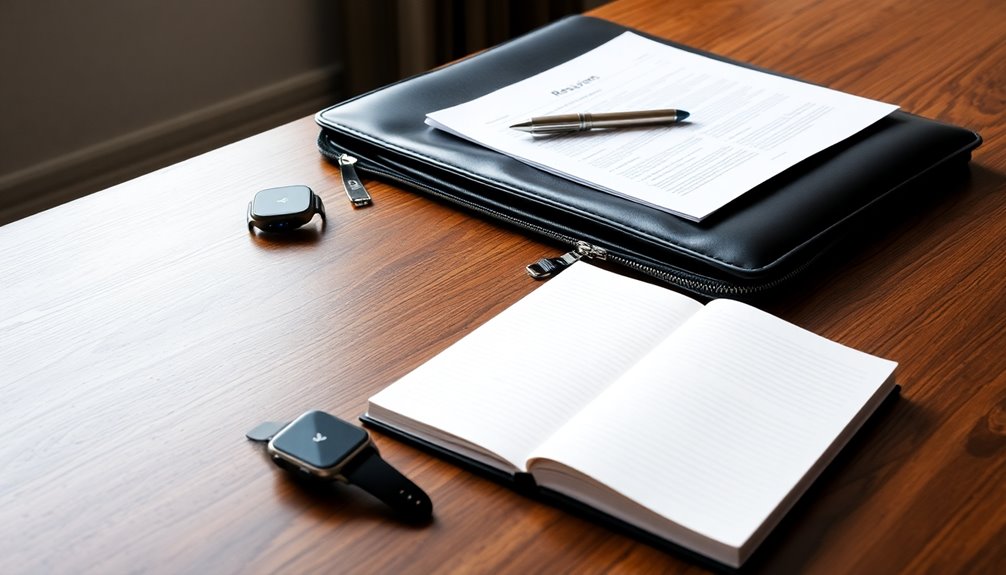To ace your interview, you've gotta bring a few game-changing items. First, pack multiple copies of your resume and cover letter in a professional folio. Next, don't forget your notebook or laptop for taking notes, and prepare a reference list to show credibility. Also, make sure you know the company address and have emergency items like mints handy. Finally, be equipped with digital tools to organize your schedule and jot down important points. Each item plays a significant role in showcasing your professionalism, so stick around to discover more essentials for interview success!
Key Takeaways
- Bring multiple copies of your resume and cover letter to distribute to interviewers effortlessly.
- Organize your documents in a professional folio for a polished and impressive presentation.
- Prepare a list of references with contact information to showcase credible endorsements.
- Carry a notebook or laptop to take notes on important discussion points during the interview.
- Include essential items like a valid photo ID, breath mints, and a phone charger for preparedness.
Essential Documents
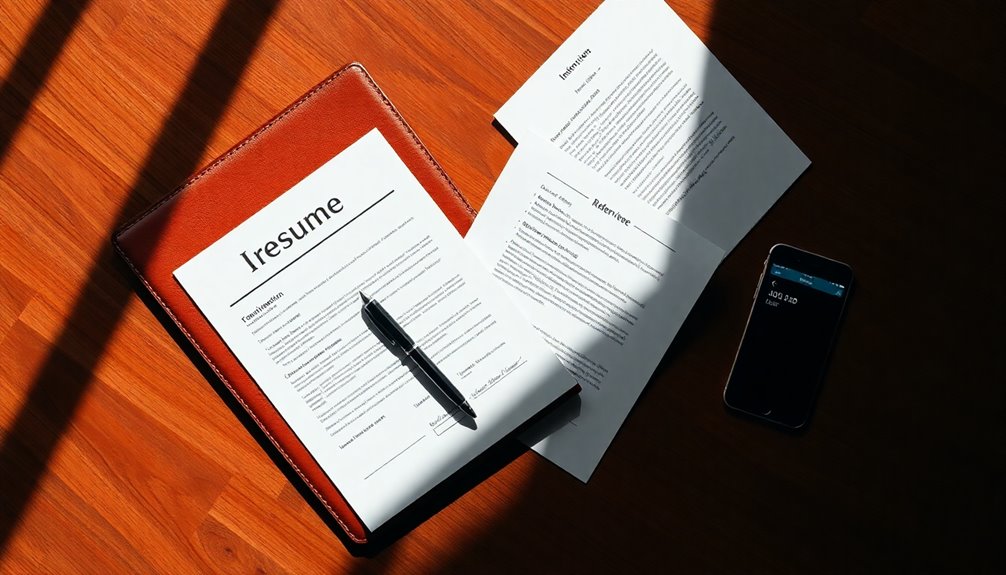
When preparing for your interview, gathering essential documents is crucial. Start by bringing multiple copies of your resume and cover letter—at least 4-5 of each. Organize them neatly in a professional folio to make a good impression. Extra copies are handy in case additional interviewers show up unexpectedly, and referring to these documents can help you highlight your accomplishments during the discussion.
Don't forget to leave a few copies for HR personnel if they request them.
Next, prepare a reference list with at least 5 copies. Include references from past managers, supervisors, or co-workers who can vouch for your skills and achievements. If you're a fresh graduate, consider including professors or community leaders. Be ready to provide this list, even if it's not explicitly asked for during the interview. Having extra copies of your reference list ensures you can share them promptly with anyone who may need them.
Finally, bring a valid photo ID, like your driver's license, for security purposes. It's also wise to prepare a fact sheet detailing your past work positions, including names, addresses, and phone numbers. This guarantees you provide accurate information without relying on electronic devices, which can fail at critical moments.
Being organized with these documents boosts your confidence and professionalism.
Writing and Note-Taking Tools
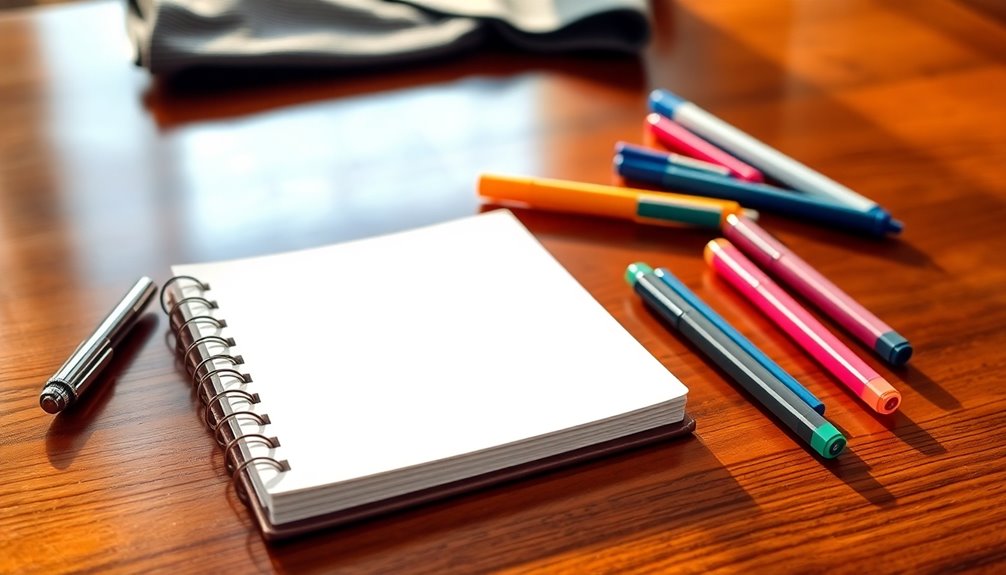
Equipping yourself with effective writing and note-taking tools can greatly enhance your interview experience. Start by bringing a notebook or laptop to capture important points. Taking thorough notes during the interview helps you write an accurate summary later. Additionally, utilizing an AI-powered tool like the Job Interview Simulator can help you practice and refine your responses to common interview questions. Understanding your credit score is crucial, as it can impact your job opportunities, especially in finance-related positions.
Review your notes soon after the interview while everything's still fresh in your mind. Highlight key points and organize your notes logically.
Consider using AI-powered transcription tools like Atlas for detailed interview notes, including transcripts and recordings. These tools offer customizable templates and strong security measures.
Metaview is another option that provides automated summaries and integrates with popular ATS and CRM systems.
Additionally, utilize interview preparation tools such as Career.io's Interview Prep for tailored questions and feedback. Google's Interview Warmup can transcribe your responses in real time, giving valuable insights into your talking points.
Finally, bring concise notes that include questions for the interviewer or specific talking points related to company challenges. Referring to these notes shows your preparation and initiative while ensuring you stay focused during the interview.
Logistical Items
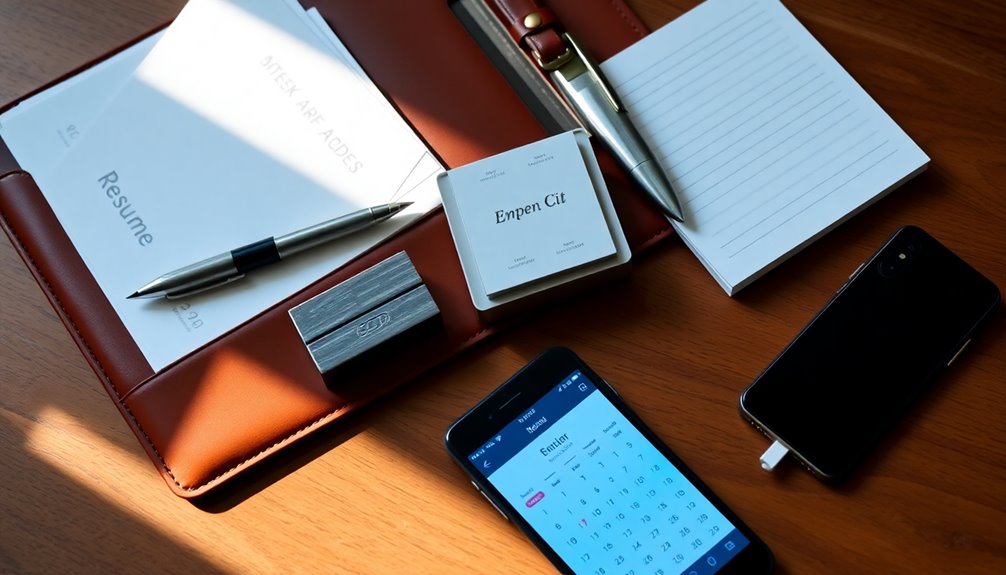
Before heading to your interview, make certain you've got all the logistical items lined up. Taking the time to organize these essentials can help you feel more prepared and confident. Here's a quick checklist to make sure you've covered everything:
| Logistical Item | Description |
|---|---|
| Company Address | Know the exact location of your interview. |
| Interviewer Details | Have the name, title, and phone number ready. |
| Parking Information | Understand where to park to avoid delays. |
| Interview Date and Time | Double-check the scheduled date and time. |
| Special Instructions | Be aware of any specific requirements given. |
Additionally, don't forget to bring your photo ID, as many places require it for entry. Having breath mints and deodorant handy can boost your confidence. Finally, a phone charger and emergency items like aspirin or hand sanitizer can be lifesavers. Remember to have a list of references prepared, as it may be requested during the interview process.
Organizational Tools
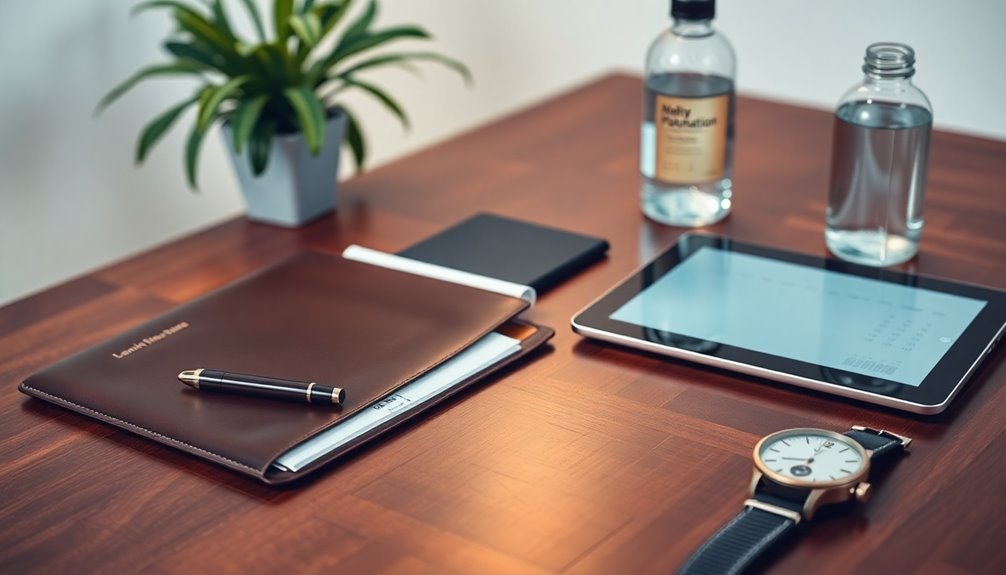
Organizational tools can be your best ally in preparing for an interview. Utilizing digital calendars and schedulers helps you track meetings, appointments, and deadlines, while setting reminders guarantees you're prepared on time. Color-coding your calendar can also facilitate quick visual organization. Additionally, many candidates find that using interview prep tools can enhance their readiness and confidence. Topical authority in your field can give you an edge in understanding industry trends and expectations.
Don't forget about to-do lists and task managers. Create prioritized lists to break down large tasks into smaller, manageable chunks. Apps like Evernote or OneNote can help you categorize and track your tasks effectively, while setting deadlines keeps you focused.
Note-taking apps can also enhance your preparation. Organize your notes by topic or project, highlighting key points for quick reference. Using tagging and search functions will allow you to locate specific information rapidly.
Lastly, employ timers and time management tools to maximize your productivity. Techniques like the Pomodoro Technique can help you maintain focus during preparation. By tracking the time spent on tasks, you can identify areas for improvement and adjust your strategies as needed.
With these organizational tools at your disposal, you'll be well-equipped to tackle your interview confidently and efficiently.
Additional Prep Strategies
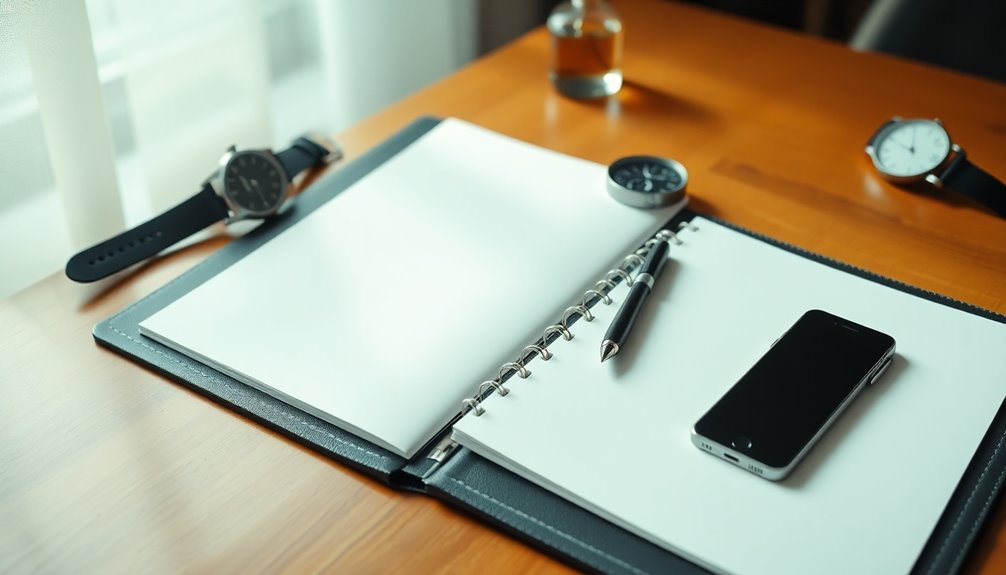
Five key strategies can greatly enhance your interview preparation. First, research the company's goals, culture, and recent press releases. Understanding the industry and competition helps you contextualize your role within the organization. Additionally, familiarizing yourself with the interviewers' backgrounds can provide valuable insights into their expectations and priorities.
Review the job description carefully to align your skills and experiences with what they're looking for. Establishing healthy boundaries during the interview process can also help you communicate your needs effectively.
Next, practice answering common interview questions using the STAR method (Situation, Task, Action, Result). This technique can help you articulate your experiences effectively. Prepare a concise 60-second elevator pitch to introduce yourself and showcase your value.
Engage in mock interviews with friends or family to build confidence.
To further boost your confidence, engage in discussions about potential interview scenarios with peers. During the interview, don't hesitate to ask the interviewer questions about the company and their experiences. This shows your genuine interest and helps build rapport.
Lastly, remember the essential interview etiquette. Arrive early, know the interviewer's name, and maintain eye contact.
Post-interview, send a thank-you note to express your appreciation and reinforce your interest in the position. Implementing these strategies can set you apart and considerably improve your chances of success.
Frequently Asked Questions
What Should I Wear to the Interview?
For your interview, you should wear business professional attire.
Choose a suit in a neutral color like black or navy, paired with a solid-color dress shirt and tie if you're a man, or a skirt suit or pantsuit if you're a woman.
Make certain your shoes are polished and conservative.
Pay attention to grooming; clean hair and nails matter.
Dressing slightly more formally than expected shows your seriousness about the opportunity.
Confidence will follow!
How Can I Manage Interview Anxiety?
Managing interview anxiety starts with preparation. You should research the company and practice common questions to feel in control.
Visualize your success and focus on your skills. Remember, some nervousness is normal; it shows your enthusiasm.
Treat the interview as a conversation and breathe deeply to calm yourself. Engage with the environment and enter confidently.
Should I Follow up After the Interview?
Yes, you should definitely follow up after the interview. Sending a thank-you email or note shows your appreciation for the opportunity and reinforces your interest in the role.
It's a chance to highlight your qualifications and remind them of key discussion points. This follow-up keeps communication open and makes you more memorable to the hiring manager.
Don't hesitate to ask for updates if you haven't heard back, as patience is key in the process.
What Should I Do if I Arrive Early?
If you arrive early, take advantage of that time wisely. Review your notes, resume, and the job description to refresh your memory.
Focus on your pre-written questions for the interviewer and make sure all your materials are in order. Interact politely with staff members, observing the office culture.
Finally, check your appearance, silence your phone, and take a few deep breaths to calm your nerves before the interview begins.
How Do I Handle Difficult Interview Questions?
When you face difficult interview questions, take a moment to pause and collect your thoughts.
If a question feels vague, don't hesitate to ask for clarification.
Use the STAR method to structure your response, focusing on the situation, task, action, and result.
Remember to reflect on the underlying motivation behind the question.
This approach will help you articulate your experiences clearly and demonstrate your problem-solving skills effectively.
Conclusion
To sum up, bringing the right items to your interview can make all the difference. Pack your essential documents, sharpen your writing tools, plan your logistics, organize your notes, and prep your strategies. By being prepared, staying focused, and presenting yourself confidently, you'll not only impress your interviewer but also set yourself up for success. So, gear up, show up, and shine—because your dream job is worth every effort!
